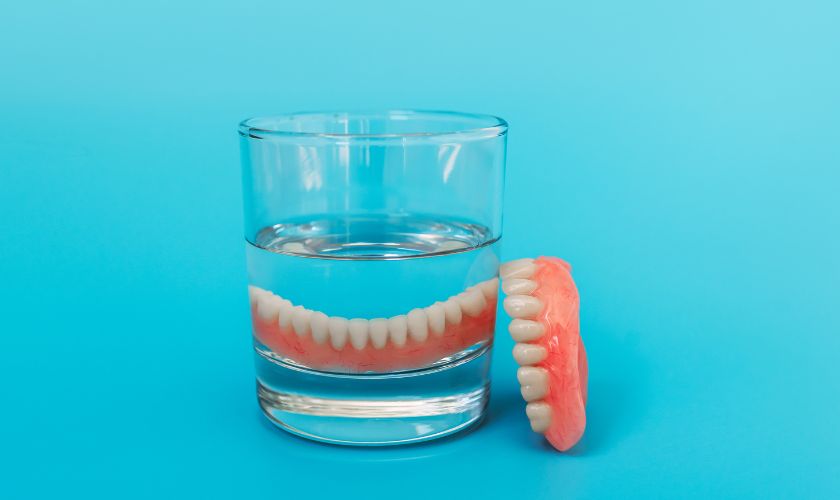Our Blog

When To See A Periodontist: Signs You Need Specialized Gum Care
Oral health goes beyond just teeth – your gums play a crucial role in maintaining a healthy smile. Periodontists are dental specialists who focus on the health and treatment of the supporting structures of teeth, including the gums. While regular visits to your dentist are important, there are instances where specialized gum care is necessary. In this article, we’ll explore the signs that indicate you should see a periodontist for specialized gum care.
Understanding Periodontal Health
Periodontal health refers to the condition of your gums and the surrounding structures that support your teeth. Periodontal diseases, such as gingivitis and periodontitis, can lead to gum inflammation, tissue damage, and even tooth loss if left untreated. A periodontist is a dentist who specializes in diagnosing, treating, and preventing these gum-related issues.
Signs You Need Specialized Gum Care
Bleeding Gums:
If your gums bleed while brushing, flossing, or eating, it could be an early sign of gum disease. Healthy gums should not bleed, so this is an indication that you may need specialized care.
Persistent Bad Breath:
Bad breath that doesn’t improve with regular oral hygiene could be due to gum disease. Periodontal infections can cause foul-smelling breath.
Gum Recession:
Receding gums expose the tooth roots and can lead to tooth sensitivity and an increased risk of cavities. A periodontist can address this issue and prevent further recession.
Swollen or Red Gums:
Inflamed gums that are red, swollen, and tender are signs of gum disease. These symptoms should not be ignored and warrant a visit to a periodontist.
Pockets Between Teeth and Gums:
If you notice pockets forming between your teeth and gums, it could be a sign of advanced gum disease. These pockets can harbor bacteria and lead to further tissue damage.
Loose Teeth:
Gum disease can lead to the loss of supporting bone, causing teeth to become loose. If you notice your teeth shifting or becoming unstable, it’s time to seek specialized care.
Changes in Bite or Tooth Alignment:
Changes in the way your teeth fit together or shifts in your bite can be indicative of underlying gum issues that require attention.
Previous Gum Treatment:
If you’ve undergone gum treatments in the past and are experiencing recurring issues, a periodontist can provide advanced care and tailor treatment to your specific needs.
Chronic Health Conditions:
Certain health conditions, such as diabetes and heart disease, are linked to periodontal health. If you have these conditions, regular visits to a periodontist are recommended.
What to Expect During Your Visit to a Periodontist
When you visit a periodontist, you can expect a comprehensive evaluation of your gum health. This may involve:
1. A thorough examination of your gums, teeth, and bite.
2. Measurement of gum pockets to assess the level of gum disease.
3. X-rays to evaluate bone health and detect any underlying issues.
4. A personalized treatment plan tailored to your needs and the severity of your gum condition.
Periodontal Treatment Options
Periodontists offer a range of treatments to address gum issues:
Scaling and Root Planing:
Also known as deep cleaning, this non-surgical procedure removes tartar and bacteria from below the gumline.
Gum Surgery:
In more advanced cases, surgical interventions such as gum grafts and flap surgery may be necessary to restore gum health.
Dental Implants:
If tooth loss has occurred due to advanced gum disease, periodontists can place dental implants to restore both the function and appearance of your smile.
Preventing Gum Issues
While seeing a periodontist is crucial for specialized care, preventing gum issues is equally important. Maintain good oral hygiene habits, including brushing, flossing, and regular dental check-ups. Avoid tobacco use and eat a balanced diet to support gum health.
The Bottom Line
Your gums are the foundation of your smile, and their health is essential for overall oral well-being. If you experience any of the signs mentioned, it’s important to seek specialized gum care from a periodontist. Periodontal issues, when detected and treated early, can be managed effectively, preventing further damage and preserving your smile for years to come. Regular visits to both your dentist and periodontist can help ensure your gums remain healthy and your smile remains radiant.

